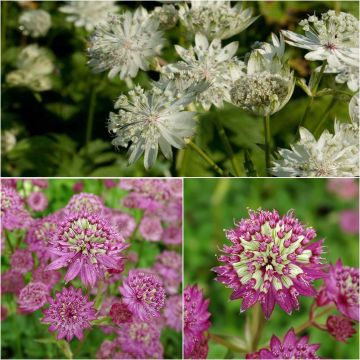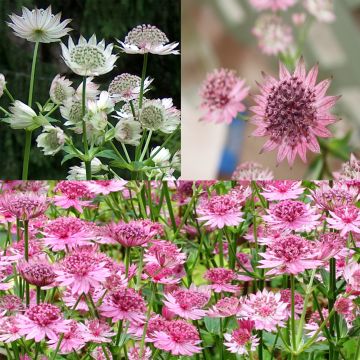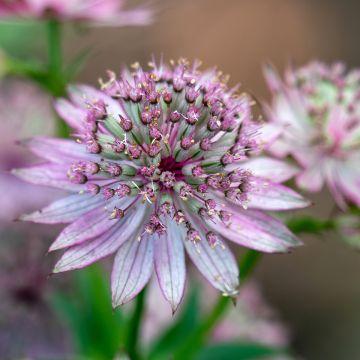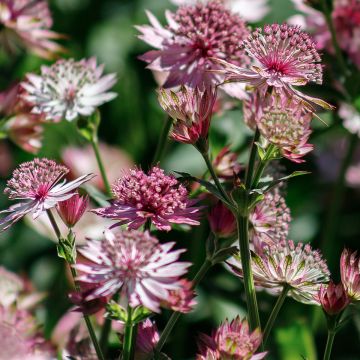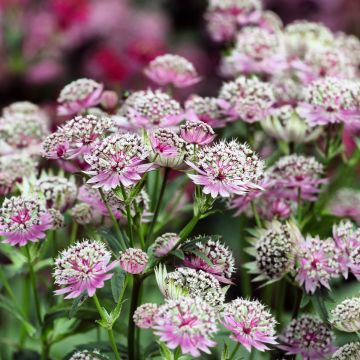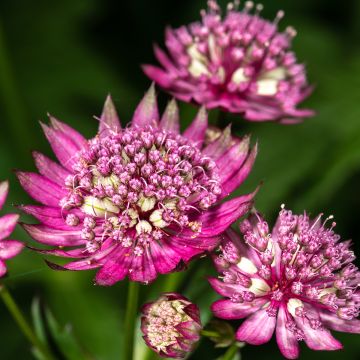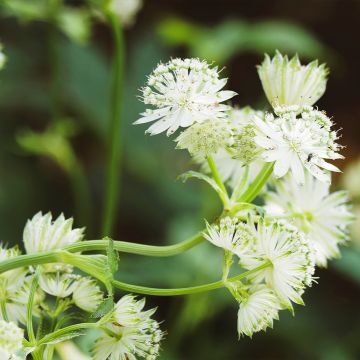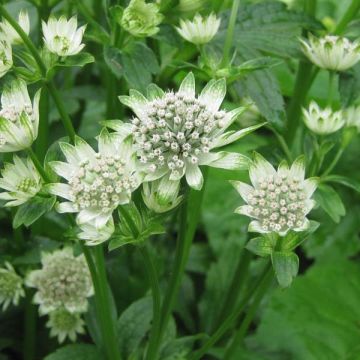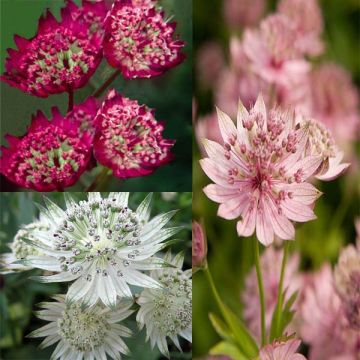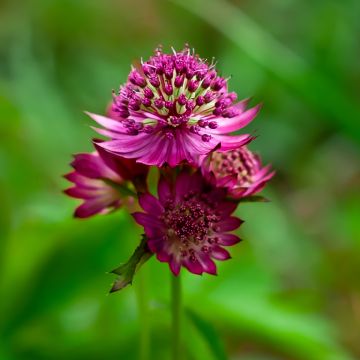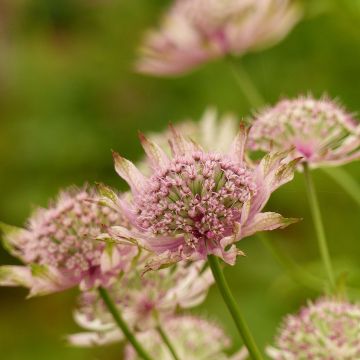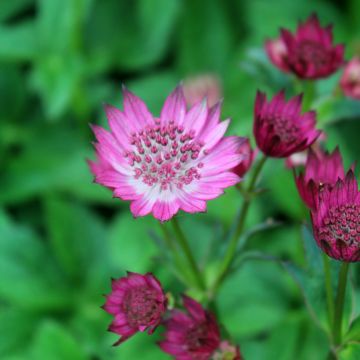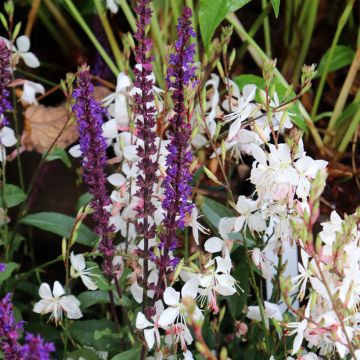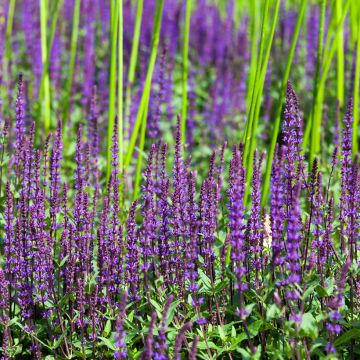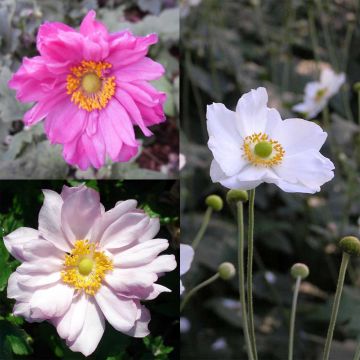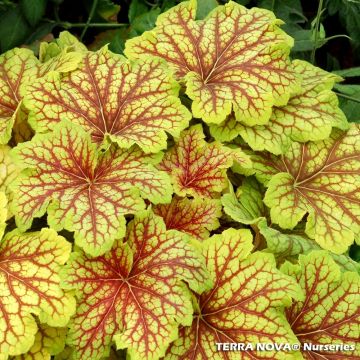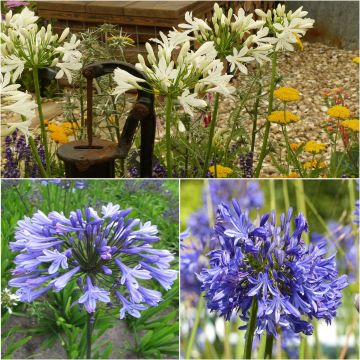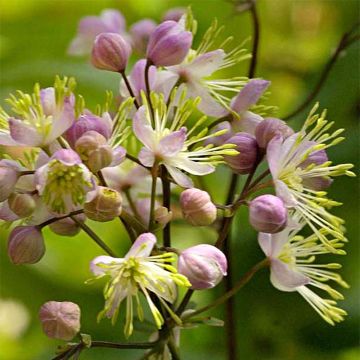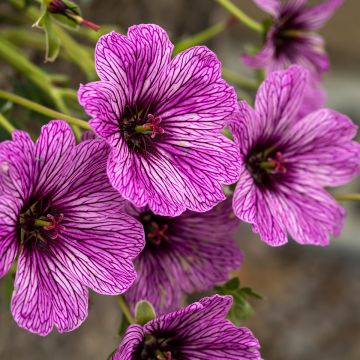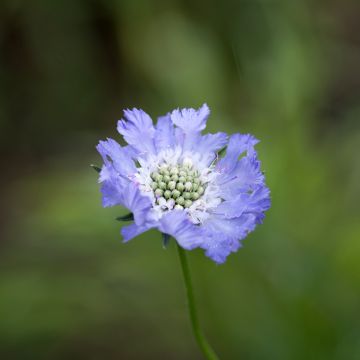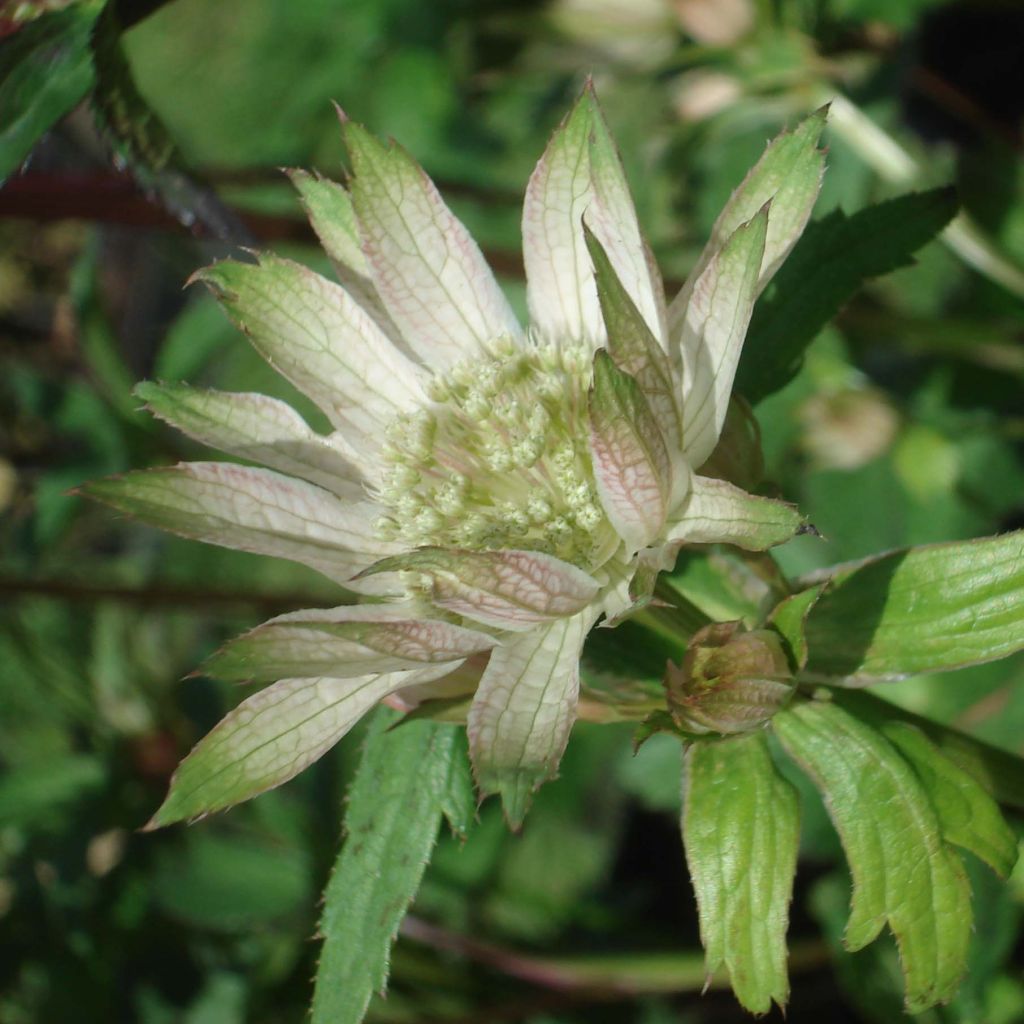

Astrantia major Princesse Sturdza - Masterwort
Astrantia major Princesse Sturdza - Masterwort
Astrantia major Princesse Sturdza
Masterwort
Received in perfect condition, I cannot comment on the growth and flowering, given the short time since planting.
Martine D., 01/11/2016
Special offer!
Receive a €20 voucher for any order over €90 (excluding delivery costs, credit notes, and plastic-free options)!
1- Add your favorite plants to your cart.
2- Once you have reached €90, confirm your order (you can even choose the delivery date!).
3- As soon as your order is shipped, you will receive an email containing your voucher code, valid for 3 months (90 days).
Your voucher is unique and can only be used once, for any order with a minimum value of €20, excluding delivery costs.
Can be combined with other current offers, non-divisible and non-refundable.
Why not try an alternative variety in stock?
View all →This plant carries a 12 months recovery warranty
More information
We guarantee the quality of our plants for a full growing cycle, and will replace at our expense any plant that fails to recover under normal climatic and planting conditions.

Would this plant suit my garden?
Set up your Plantfit profile →
Description
Astrantia major Princesse Sturdza, also known as masterwort, offers inflorescences of exceptional size, white with lavender reflections, up to 5 cm (2in) in diameter, with green-tipped petals. Its timeless charm can be appreciated throughout the summer. Familiar in cottage gardens and easy to grow in cool soil, it often finds its way into neglected corners. It has simple grace and an accommodating nature. A good flower for both dried and fresh bouquets.
Astrantia major, native to central and eastern Europe, belongs to the Apiaceae family (formerly known as Umbellifers), making it a distant relative of the carrot. The bushy and somewhat loose habit enhances the elegance of the flowers. The plant forms a clump 50 cm (20in) tall when in bloom, and 45 cm (18in) wide. The foliage is dense, composed of deciduous palmate leaves with 5 deep lobes, lanceolate, toothed, green, and strongly veined. The particularly large flowers, in umbels, appear from June to August at the top of very stiff stems. They are composed of dozens of small white flowers, each tipped with lavender, surrounded by collar-like large bracts, also white and tipped and veined with green.
Easy to grow, Astrantia major 'Princesse Sturdza' thrives in humus-rich, moist, and well-drained soil in sunny, semi-shady, or even shady positions in warm climates. This variety with large flowers has a strong personality while retaining the charm of cottage plants. Very popular in contemporary gardens, it requires little maintenance and thrives even in neglected gardens. It is particularly well-suited to the 'meadow' style, planted in drifts, as its flowers, which complement ornamental grasses, add texture. You can also create large country-style displays along herbaceous borders, and of course, make beautiful fresh or dried floral bouquets. It pairs perfectly with perennials and roses in natural and/or romantic settings.
Tip: Combine several varieties to create a beautiful colour palette.
Report an error about the product description
Astrantia major Princesse Sturdza - Masterwort in pictures
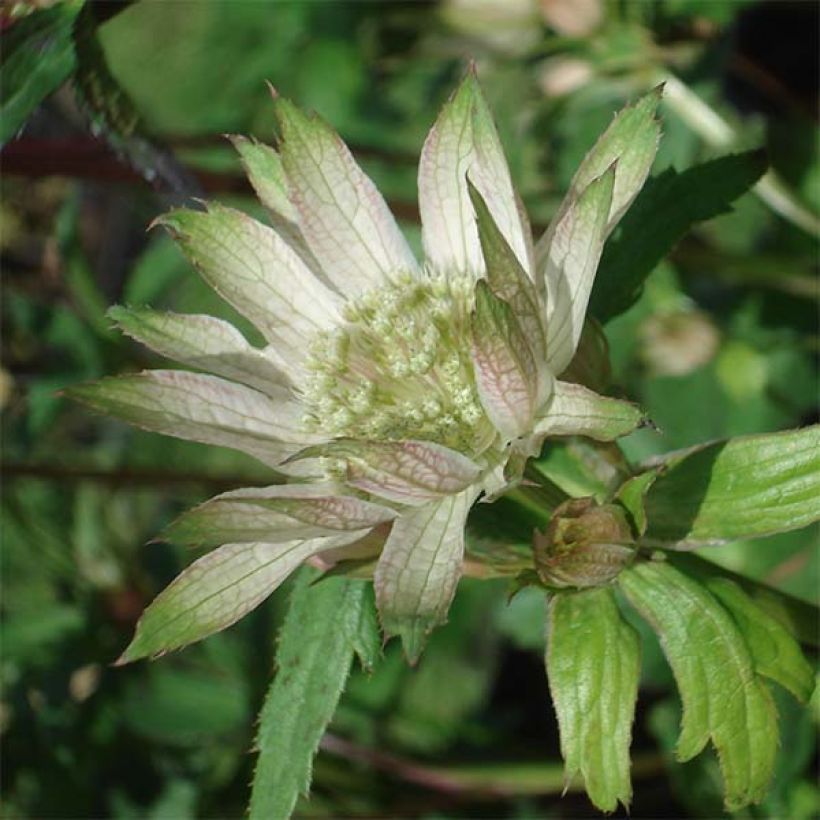

Flowering
Foliage
Plant habit
Botanical data
Astrantia
major
Princesse Sturdza
Apiaceae
Masterwort
Cultivar or hybrid
Other Astrantia - Masterwort
View all →Planting and care
Easy to grow, Astrantia major 'Princesse Sturdza' thrives in humus-rich, moist and well-drained soil in sunny, partially shaded, or even shady locations in warm climates. It requires little maintenance. Cut back the unsightly foliage before winter and remove faded flowers to encourage a second flowering. It self-seeds very easily, although not always reliably. Its only known enemies are slugs and snails.
Astrantia 'Princesse Sturdza' should be planted in spring or autumn, at a rate of 5 plants per square meter. To plant your young plant, prepare your soil to a depth of 20 cm (8in) by breaking up the soil well and adding fertiliser such as bone meal. Position your plant, removed from its pot, by covering the top of the root ball with 3 cm (1in) of soil. Fill in the hole, tamp down, and water thoroughly to eliminate any air pockets. During dry weather, water regularly for a few weeks to facilitate root establishment. During wet weather, it is necessary to protect the young plants from slugs by using wood ash, slug repellent, or even beer! Each of these solutions is highly effective.
Planting period
Intended location
Care
-
, onOrder confirmed
Reply from on Promesse de fleurs
Similar products
Haven't found what you were looking for?
Hardiness is the lowest winter temperature a plant can endure without suffering serious damage or even dying. However, hardiness is affected by location (a sheltered area, such as a patio), protection (winter cover) and soil type (hardiness is improved by well-drained soil).

Photo Sharing Terms & Conditions
In order to encourage gardeners to interact and share their experiences, Promesse de fleurs offers various media enabling content to be uploaded onto its Site - in particular via the ‘Photo sharing’ module.
The User agrees to refrain from:
- Posting any content that is illegal, prejudicial, insulting, racist, inciteful to hatred, revisionist, contrary to public decency, that infringes on privacy or on the privacy rights of third parties, in particular the publicity rights of persons and goods, intellectual property rights, or the right to privacy.
- Submitting content on behalf of a third party;
- Impersonate the identity of a third party and/or publish any personal information about a third party;
In general, the User undertakes to refrain from any unethical behaviour.
All Content (in particular text, comments, files, images, photos, videos, creative works, etc.), which may be subject to property or intellectual property rights, image or other private rights, shall remain the property of the User, subject to the limited rights granted by the terms of the licence granted by Promesse de fleurs as stated below. Users are at liberty to publish or not to publish such Content on the Site, notably via the ‘Photo Sharing’ facility, and accept that this Content shall be made public and freely accessible, notably on the Internet.
Users further acknowledge, undertake to have ,and guarantee that they hold all necessary rights and permissions to publish such material on the Site, in particular with regard to the legislation in force pertaining to any privacy, property, intellectual property, image, or contractual rights, or rights of any other nature. By publishing such Content on the Site, Users acknowledge accepting full liability as publishers of the Content within the meaning of the law, and grant Promesse de fleurs, free of charge, an inclusive, worldwide licence for the said Content for the entire duration of its publication, including all reproduction, representation, up/downloading, displaying, performing, transmission, and storage rights.
Users also grant permission for their name to be linked to the Content and accept that this link may not always be made available.
By engaging in posting material, Users consent to their Content becoming automatically accessible on the Internet, in particular on other sites and/or blogs and/or web pages of the Promesse de fleurs site, including in particular social pages and the Promesse de fleurs catalogue.
Users may secure the removal of entrusted content free of charge by issuing a simple request via our contact form.
The flowering period indicated on our website applies to countries and regions located in USDA zone 8 (France, the United Kingdom, Ireland, the Netherlands, etc.)
It will vary according to where you live:
- In zones 9 to 10 (Italy, Spain, Greece, etc.), flowering will occur about 2 to 4 weeks earlier.
- In zones 6 to 7 (Germany, Poland, Slovenia, and lower mountainous regions), flowering will be delayed by 2 to 3 weeks.
- In zone 5 (Central Europe, Scandinavia), blooming will be delayed by 3 to 5 weeks.
In temperate climates, pruning of spring-flowering shrubs (forsythia, spireas, etc.) should be done just after flowering.
Pruning of summer-flowering shrubs (Indian Lilac, Perovskia, etc.) can be done in winter or spring.
In cold regions as well as with frost-sensitive plants, avoid pruning too early when severe frosts may still occur.
The planting period indicated on our website applies to countries and regions located in USDA zone 8 (France, United Kingdom, Ireland, Netherlands).
It will vary according to where you live:
- In Mediterranean zones (Marseille, Madrid, Milan, etc.), autumn and winter are the best planting periods.
- In continental zones (Strasbourg, Munich, Vienna, etc.), delay planting by 2 to 3 weeks in spring and bring it forward by 2 to 4 weeks in autumn.
- In mountainous regions (the Alps, Pyrenees, Carpathians, etc.), it is best to plant in late spring (May-June) or late summer (August-September).
The harvesting period indicated on our website applies to countries and regions in USDA zone 8 (France, England, Ireland, the Netherlands).
In colder areas (Scandinavia, Poland, Austria...) fruit and vegetable harvests are likely to be delayed by 3-4 weeks.
In warmer areas (Italy, Spain, Greece, etc.), harvesting will probably take place earlier, depending on weather conditions.
The sowing periods indicated on our website apply to countries and regions within USDA Zone 8 (France, UK, Ireland, Netherlands).
In colder areas (Scandinavia, Poland, Austria...), delay any outdoor sowing by 3-4 weeks, or sow under glass.
In warmer climes (Italy, Spain, Greece, etc.), bring outdoor sowing forward by a few weeks.






























